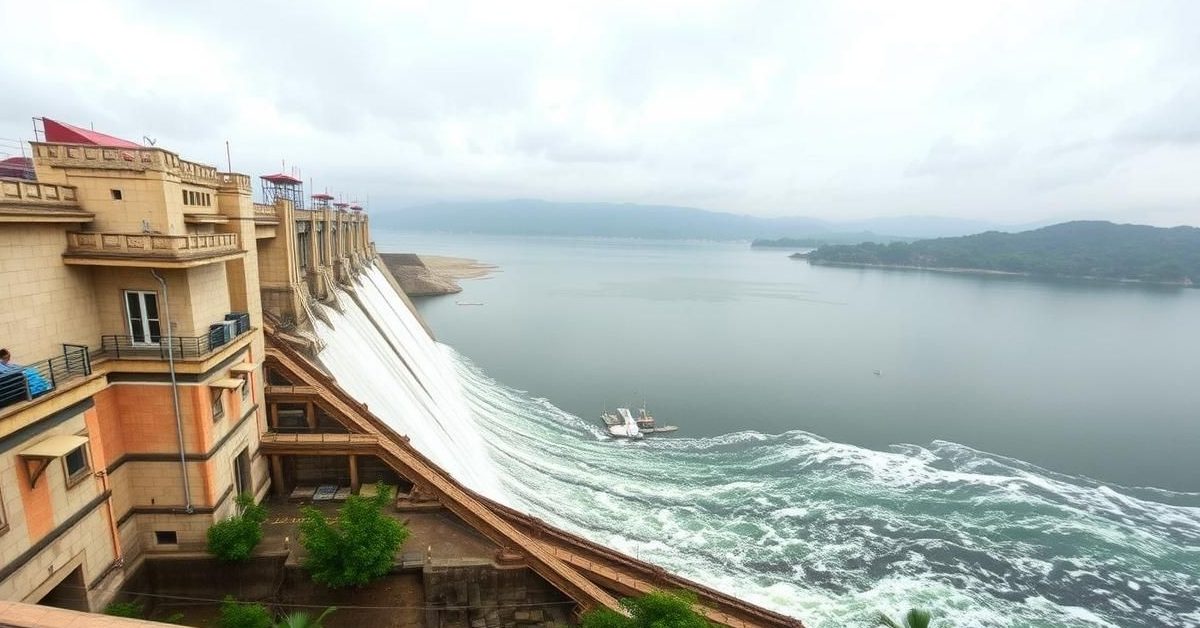This article explores diverse environmental and geographical issues, from the impacts of illegal sand mining and groundwater contamination to primate social structures and global climate finance discussions.
Environmental Damage from Illegal Sand Mining
Illegal sand mining causes significant environmental harm. It leads to loss of fertile land, depletion of the water table, and degradation of riverbeds. This destructive practice also contributes to soil erosion, increased water turbidity, and harm to aquatic habitats, threatening the ecological balance of rivers.
Groundwater Contamination: The Fluoride Challenge
Excessive fluoride in groundwater poses health risks, including skeletal fluorosis. While naturally present, levels over 1.50 milligrams per litre are unsafe for drinking. Rajasthan notably records the highest average fluoride concentrations, particularly in its drier western regions.
Primate Societies: Challenging Dominance Norms
Recent studies indicate male dominance is rare in primate societies, with females often holding equal or more power. This challenges long-held assumptions, as female dominance frequently stems from reproductive control, not just physical prowess. Male dominance typically occurs in terrestrial or sexually dimorphic species where strength is a key factor.
Life in Extreme Heat: Nature’s Resilient Species
Remarkably, some organisms thrive in extreme heat. The Pompeii worm lives near deep-sea vents at temperatures up to 105°C, aided by heat-shielding bacteria. Tardigrades, microscopic “water bears,” can survive up to 150°C, along with radiation, dehydration, and even outer space. Various thermophilic microbes also flourish in boiling hot springs, exceeding 120°C.
Rat-Hole Mining: Unsafe Practices in Meghalaya
Rat-hole mining, common in Meghalaya, is a dangerous method of extracting coal from narrow pits. Miners use rudimentary tools, often without proper ventilation or structural support. This unregulated practice leads to severe safety risks for workers and extensive environmental damage like land degradation, deforestation, and water contamination.
Biofuels: A Complex Solution for Energy
Bioethanol can be produced from sugarcane, maize, and other grains. While Brazil’s sugarcane-based ethanol has a lower environmental impact due to integrated processing, India’s increased use of maize for biofuel has shifted it from an exporter to an importer of the grain. This highlights ongoing debates about biofuel sustainability and its wider economic implications.
Swachh Survekshan Awards: A New Tier for Clean Cities
The Swachh Survekshan 2024-25 awards now feature a ‘Super Swachh League’ for consistently high-performing cities. This new category includes top cities like Indore, Surat, and Navi Mumbai, separating them from the general nationwide ranking. This allows other cities, such as Ahmedabad, to gain recognition in the main awards.
Climate Finance: India’s Push at Bonn Talks
India, supported by developing nations, recently advocated for discussions on Article 9.1 of the Paris Agreement at the Bonn climate talks. This article stipulates that developed countries “shall provide financial resources” to aid developing nations with climate action. This move aims to ensure developed nations fulfill their direct financial obligations for climate mitigation and adaptation.
- Illegal sand mining damages land, water tables, and riverbeds.
- Groundwater with over 1.50mg/litre fluoride is unsafe; Rajasthan has the highest levels.
- Female dominance is common in primate societies, often due to reproductive control.
- Pompeii worms and tardigrades survive temperatures over 100°C.
- Rat-hole mining in Meghalaya poses severe safety and environmental risks.
- Sugarcane ethanol often has a lower environmental impact than maize-based.
- ‘Super Swachh League’ recognizes top cities in India’s cleanliness awards separately.
- India urges developed nations to fulfill Article 9.1 climate finance obligations.















